Lobster festivals in Belize create an enchanting experience that seamlessly integrates cultural heritage with coastal celebrations. By participating in these lively festivals in Caye Caulker, San Pedro, or Placencia, you can deeply engage with a longstanding tradition that has thrived for decades. Each festival highlights the importance of Sustainable fishing practices, which are essential for safeguarding Belize’s precious marine resources and uplifting local communities. Attendees can enjoy everything from traditional grilling methods to modern culinary innovations, presenting a unique opportunity to relish fresh, locally-caught spiny lobster. Your involvement not only enhances your culinary adventure but also significantly contributes to preserving Belize’s cultural heritage and protecting its delicate marine ecosystem.
Experience the Thrill of Attending Belize’s Lobster Festivals
The Belize lobster festivals go beyond simple celebrations; they embody a cultural festivity that artfully combines seafood gastronomy with community traditions. These vibrant events radiate the warmth of Belizean hospitality and underscore the importance of sustainable fishing practices. Each year, more than 15,000 visitors flock to these festivals across various locations, making them a crucial part of Belize’s cultural calendar, captivating both locals and tourists alike with their charm and vibrancy.
Explore Engaging Festival Activities Across Belize
- Caye Caulker Lobster Fest – A dynamic celebration that takes place every July
- San Pedro Lobster Festival – A two-week culinary extravaganza showcasing a variety of dishes
- Placencia Lobster Fest – A lively beachside gathering that features local flavors and unique experiences
| Festival Location | Unique Features |
|---|---|
| Caye Caulker | Interactive cooking demonstrations that showcase traditional local techniques |
| San Pedro | Exciting lobster crawl events that promote culinary exploration and creativity |
| Placencia | Vibrant beach parties filled with music, culture, and local traditions |
| Duration | 2 to 14 days of immersive cultural festivities |
| Peak Season | July to August, when the celebrations reach their pinnacle |
Tracing the Evolution of Belize’s Lobster Festival Tradition
The establishment of the Belize lobster festivals marks a pivotal moment in the nation’s cultural calendar, starting in 1994 with the inaugural Caye Caulker Lobster Festival, which began as a modest fundraising initiative. This event has since blossomed into a grand celebration of local cuisine and cultural heritage, showcasing the best of what Belize has to offer.
Over the years, Belize’s lobster festivals have evolved from simple community gatherings into major tourism attractions. Today’s celebrations feature exhilarating food competitions, lively beach parties, and insightful sustainable fishing demonstrations, firmly establishing these festivals as vital contributors to both the local economy and the rich cultural identity of Belize.
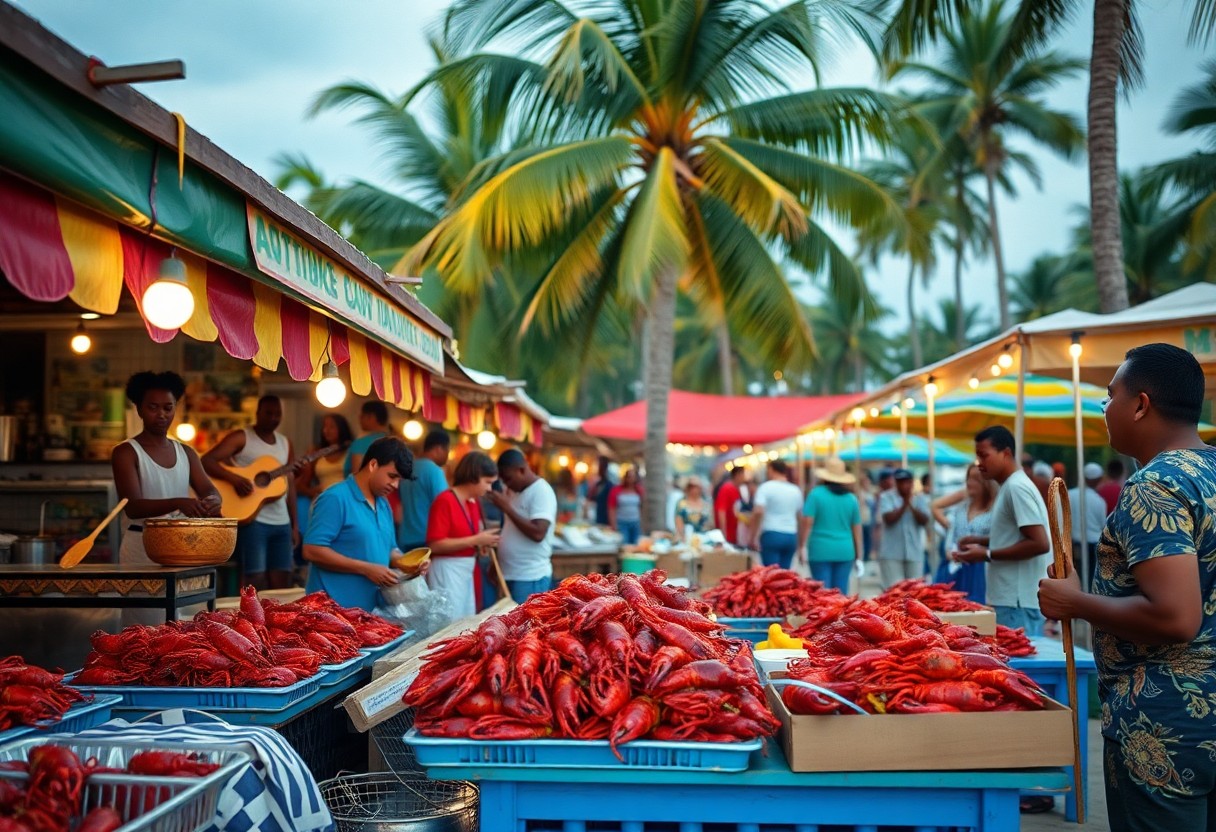
Emphasizing Sustainable Fishing Practices in Belize
Your understanding of Belize’s lobster industry will greatly enhance as you explore their unwavering commitment to sustainable fishing practices. Local fishing communities strive to balance the excitement of the festivals with the crucial need to protect vital marine resources. Fishers in the region strictly follow size and weight requirements, ensuring that only mature lobsters are harvested. This includes a minimum tail weight of 4 ounces and a carapace length of 3 inches, which are essential for maintaining the sustainability of the lobster population and ensuring healthy future harvests.
Understanding Fishing Regulations and Guidelines in Belize
The fishing practices in Belize are regulated by clear seasonal restrictions that are critical for the health of lobster populations. The fishing season operates from July 1 to February 28, allowing lobsters adequate time to reproduce during the off-season. The Belize Fisheries Department plays a key role in enforcing these regulations by conducting regular monitoring and imposing heavy penalties for violations. By attending these festivals, you actively support essential conservation efforts aimed at sustaining the local ecosystem and economy.
Discovering Traditional Fishing Techniques in Belize
Delving into Belize’s rich fishing heritage reveals that local fishers employ three primary techniques: lobster traps, diving with hooks, and lobster shades. These methods have been carefully refined over generations to minimize environmental impact while ensuring effective harvesting rates.
For instance, lobster shades—sustainable artificial shelters—serve as safe havens for lobsters, enhancing the efficiency of harvesting. These structures can remain submerged for 2-3 years, unlike traditional traps, which must be removed during the closed season. Understanding these techniques fosters a deeper appreciation for the preservation of both fishing culture and marine ecosystems, showcasing the wisdom embedded in these time-honored practices.
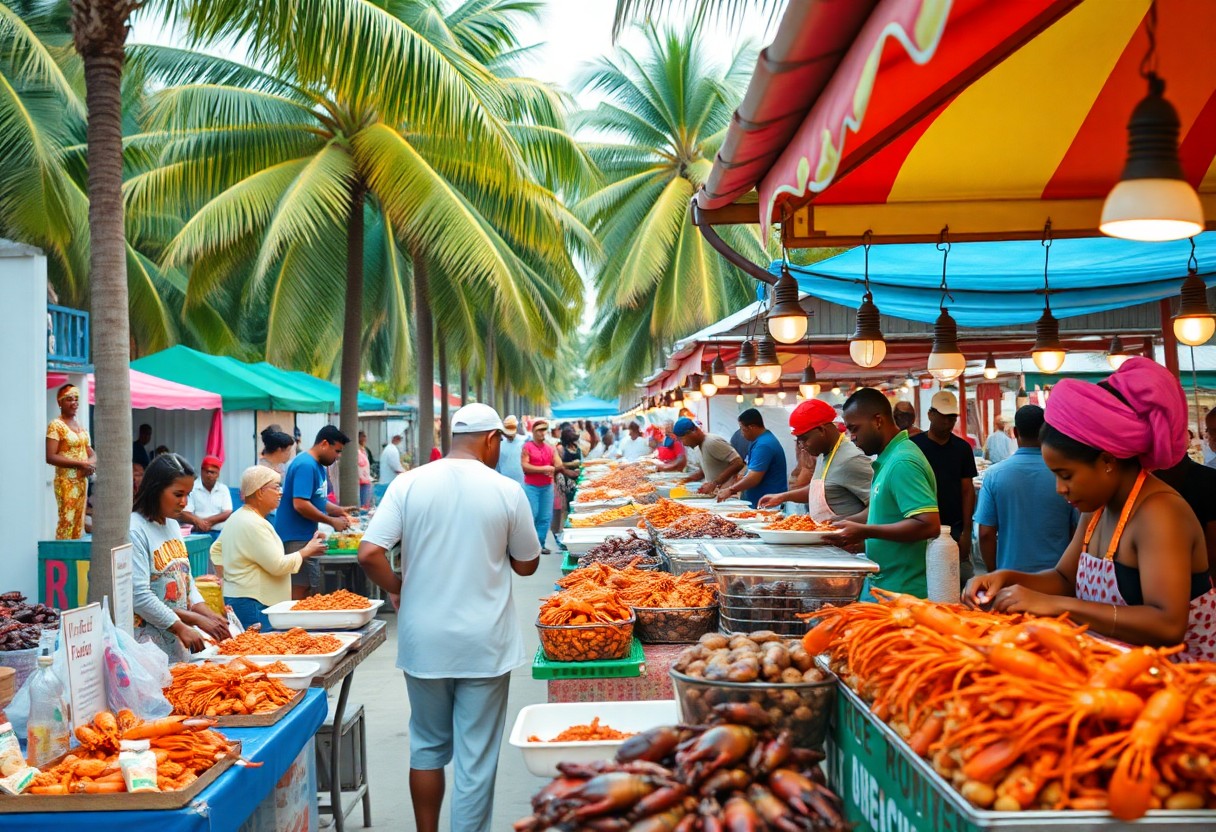
Planning for a Thriving Lobster Festival Experience
As you embark on the journey of organizing a lobster festival, it is essential to develop a comprehensive and well-structured plan to ensure its success and vibrancy.
- Selecting an appropriate venue that can accommodate the expected crowd size is crucial for a smooth event
- Obtaining permits and licenses in advance is essential to prevent any delays or complications
- Coordinating with local vendors requires meticulous planning and clear communication to ensure a seamless experience
- Implementing safety measures that are in compliance with health regulations is imperative for the safety of all attendees
It is advisable to allocate at least 3-4 months for thorough preparation to ensure a well-executed event that meets the expectations of all participants and enhances their overall experience.
Key Factors for Efficient Festival Planning
Successfully organizing your festival entails paying close attention to specific details to ensure a seamless experience for all involved.
- Weather considerations during the July-August season can significantly influence attendance and overall enjoyment
- Availability of an emergency response team is essential for ensuring the safety and well-being of all festival-goers
- Implementing waste management systems to maintain cleanliness and reduce environmental impact is vital
- Crowd control strategies must be established to ensure attendee safety during peak times
Once these foundational elements are secured, you can shift your focus to scheduling entertainment and activities that will engage attendees and enrich their experience.
Ensuring Culinary Excellence at Your Festival
To guarantee exceptional food quality at your festival, maintaining proper storage temperatures for the lobster is essential. Vendors must possess food handling certifications and strictly adhere to local health guidelines to ensure the safety of the food served. Each booth should be equipped with adequate refrigeration and sanitation stations to uphold high hygiene standards.
Moreover, it is crucial to maintain food safety standards throughout the event. Establishing clear guidelines for portion control and cooking methods is vital for ensuring food quality. Vendors must keep thorough records of their lobster sourcing to comply with Belize’s fishing regulations, which specify that lobsters must meet a minimum tail weight of 4 ounces and a carapace length of 3 inches.
Boosting Economic Growth Through Lobster Festivals
Many coastal communities in Belize have experienced significant economic growth as a result of lobster festivals. These dynamic events generate over $2 million annually in tourism revenue, which spurs job creation and bolsters local businesses. Your attendance at these festivals directly supports the sustainable fishing industry and helps preserve traditional fishing practices that are crucial for the local culture.
Transformative Economic Benefits for Local Communities through Festivals
Even the smallest fishing villages have evolved into thriving tourist destinations during the festival season. You’ll find local families managing food stalls, craft vendors offering unique souvenirs, and fishermen proudly showcasing their fresh catch. The festivals create direct income opportunities for over 500 local families while supporting significant marine conservation initiatives that protect the delicate ecosystem.
Key Factors Driving Industry Growth in Belize
An insightful analysis of Belize’s lobster festival industry uncovers several pivotal growth drivers:
- Sustainable fishing practices that protect marine life and ensure future harvests
- International tourism promotion that attracts visitors and highlights local culture
- Local culinary innovation that enhances the festival experience and draws food enthusiasts
- Community involvement that fosters inclusivity and strengthens local bonds
This collective impact has resulted in a remarkable 15% annual growth in festival attendance, underscoring the significance of these events for both the community and the local economy.
It’s essential to recognize that the success of these festivals relies on:
- Strict adherence to fishing regulations that ensure the sustainability of lobster populations
- Quality control measures that maintain high culinary standards
- Environmental protection initiatives that safeguard ecosystems and local habitats
- Robust tourism infrastructure that enhances visitor experiences and accessibility
This sustainable approach guarantees long-term economic benefits for local communities and the environment, creating a win-win scenario for all involved.
Dedication to Conservation Efforts in Belize
The preservation of Belize’s spiny lobster population is of utmost importance, prompting the implementation of strict fishing regulations and seasonal restrictions. These proactive measures have effectively maintained healthy lobster populations while supporting local fishing communities. The closed season from March 1 to June 30 is crucial for successful breeding and population recovery, ensuring that the lobster population remains robust for future generations.
Proactive Environmental Protection Strategies in Fishing
Even small actions can yield significant impacts in lobster conservation. Local fishers adopt sustainable fishing methods such as lobster shades and regulated traps to minimize their environmental footprint. The minimum catch size of 4 ounces and 3-inch carapace length guarantees that young lobsters have the opportunity to mature and reproduce before being harvested, thereby maintaining ecological balance.
Empowering Community Education Initiatives on Sustainability
Your interest in local conservation efforts will be richly rewarded as you learn how Belize’s fishing communities impart traditional sustainable fishing practices to younger generations. Local organizations frequently conduct workshops focused on responsible fishing methods and highlight the importance of adhering to regulations to protect marine life.
Moreover, your involvement in these festivals directly supports educational initiatives aimed at fostering awareness. The festivals serve as interactive platforms where you can connect with local fishers and gain insights into marine conservation efforts. These events help fund educational programs designed to teach both children and visitors about the significance of sustainable fishing practices and the necessity of protecting marine ecosystems.
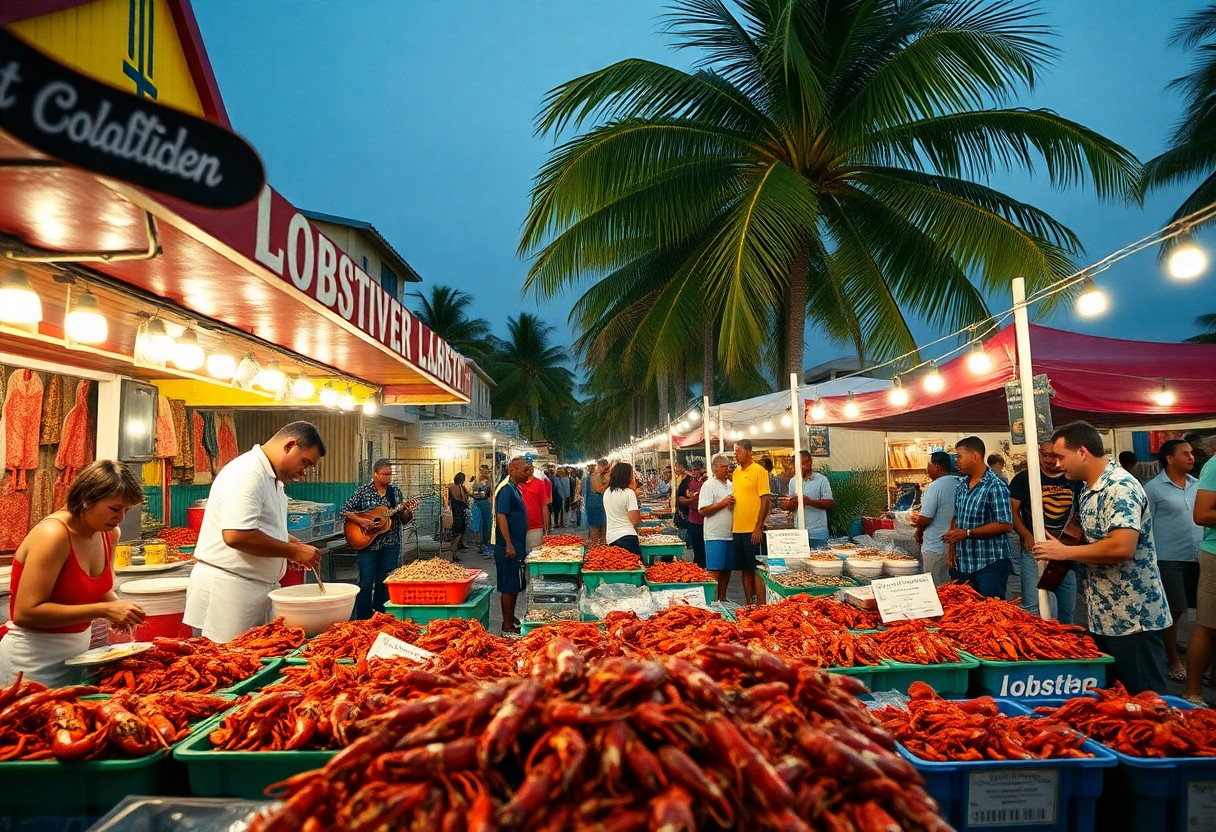
Maximizing Your Enjoyment at the Lobster Festivals
Once you decide to attend a Belize Lobster Festival, it’s crucial to familiarize yourself with the safety guidelines and local regulations. Following these best practices will not only enhance your festival experience but also promote sustainability and ensure the safety of all attendees during the celebrations.
Essential Vendor Guidelines for Triumph at Festivals
If you’re contemplating selling goods at the festival, it is imperative to secure proper permits from local authorities. Your booth must adhere to food safety standards, sourcing lobsters exclusively from licensed fishermen. Verification that all lobsters meet the minimum size requirement of 4 ounces and 3 inches carapace length is mandatory to ensure compliance and safety for all festival-goers.
Visitor Tips for an Enjoyable Festival Experience
When attending the festival, it’s advisable to arrive early to enjoy the finest selection of lobster dishes available. Your overall experience will be enriched by bringing cash for effortless transactions, wearing comfortable shoes for walking, and utilizing sun protection to stay safe under the tropical sun. Prior to making purchases, be sure to check the food preparation standards to guarantee quality.
Participating in festival activities necessitates attentiveness to safety protocols. You can enhance your experience by sampling various vendor offerings, engaging in local dance celebrations, and supporting sustainable fishing practices. Festivals typically run from morning until late evening, with peak crowds occurring between 12 PM and 4 PM, so plan your visit accordingly to fully enjoy the festivities.
Immerse Yourself in the Essence of Belize Lobster Festivals
Your journey through Belize Lobster Festivals allows you to appreciate how these events intertwine cultural celebration with sustainable practices. Attending any of these festivals—whether in Caye Caulker, San Pedro, or Placencia—provides an opportunity to indulge in the authentic flavors of Belize while uplifting local communities. Witness firsthand how fishers adhere to stringent guidelines for lobster conservation, chefs create exquisite dishes, and locals share their rich heritage. These festivals exemplify Belize’s commitment to balancing tourism growth with environmental stewardship, establishing them as a benchmark for sustainable food festivals around the globe.
Your Inquiries Addressed: FAQ about Belize Lobster Festivals
Q: When and where can I experience the Lobster Festivals in Belize?
A: The Lobster Festivals kick off at the start of the lobster season on July 1st. The main locations for these festivities are Caye Caulker (since 1994), Placencia (since 1998), and San Pedro (since 2007). The San Pedro festival spans two weeks, while Caye Caulker and Placencia each host weekend-long celebrations, each offering a distinctive experience.
Q: What measures does Belize implement to ensure sustainable lobster fishing practices during the festivals?
A: The Belize Fisheries Department enforces stringent regulations: lobsters must weigh a minimum of 4 ounces and have a carapace length of at least 3 inches. The fishing season lasts from July 1 to February 28, facilitating sustainable harvesting. Fishers utilize responsible methods such as lobster shades and traps, which must be removed during the closed season to protect juvenile lobsters. Licensed fishers strictly comply with these regulations to ensure the longevity of lobster populations.
Q: How do the Lobster Festivals economically benefit local communities?
A: The festivals create substantial income opportunities for local fishers, restaurant owners, and businesses during the tourism low season. Restaurants actively participate in events like the lobster crawl, showcasing unique lobster dishes that attract visitors. By drawing thousands of tourists, these festivals enhance the local economy through food sales, accommodations, and various tourism activities. The events provide fishing families with a reliable source of income while simultaneously supporting sustainable fishing practices.
The Article Belize Lobster Festivals: A Celebration of History, Sustainability, and Prosperity appeared first on Belize Travel Guide
The Article Belize Lobster Festivals: Celebrating Sustainability and Culture Was Found On https://limitsofstrategy.com
References:
Belize Lobster Festivals: Celebrating Sustainability and Culture
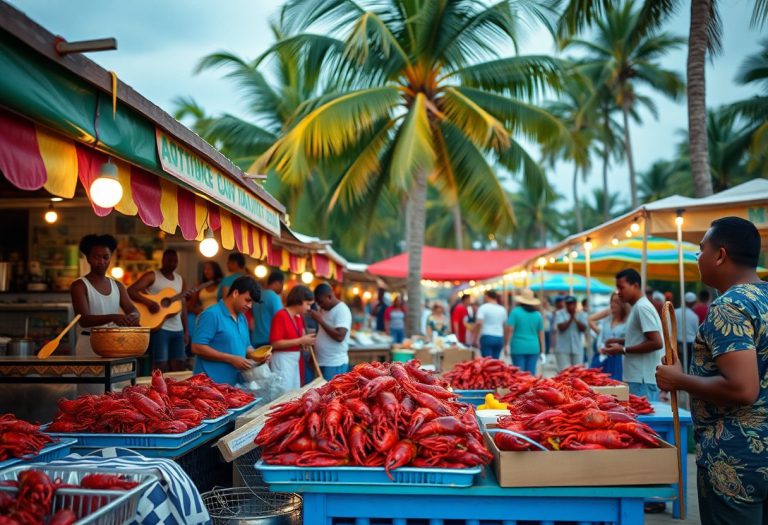
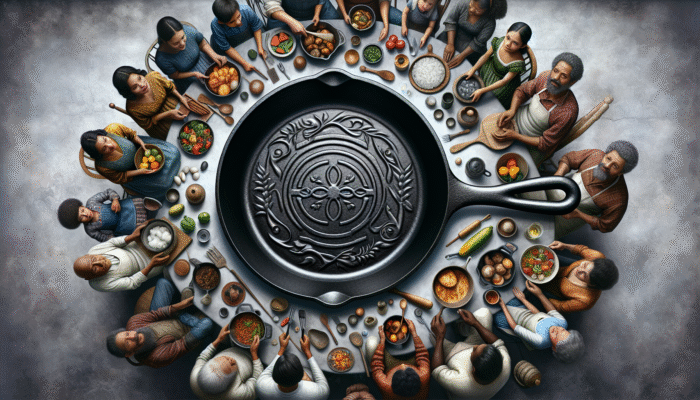



I found your insights into the lobster festivals in Belize truly captivating! It’s fascinating how these events not only celebrate a beloved local delicacy but also weave in the crucial themes of cultural heritage and sustainability. I’ve always been intrigued by how food can act as a bridge between tradition and modernity, and the Belize lobster festivals seem to embody this beautifully.
I appreciate your thoughts on the lobster festivals in Belize. It’s interesting to see how food acts as more than just sustenance—it really can tell the story of a place and its people. The way these festivals celebrate the lobster not only highlights the culinary joys but also brings to light the rich cultural tapestry of Belizean life.
I’m glad you found the lobster festivals fascinating! The way food connects people to their cultural roots is pretty powerful. At these festivals, it’s not just about the lobster itself; it’s about the stories behind how it’s harvested, prepared, and celebrated.
I couldn’t agree more about the power of food to connect us with our cultural roots. It’s interesting how festivals like those highlight not only the culinary aspects but also the traditions and histories tied to them. For many communities, seafood, especially something as iconic as lobster, tells a story of sustainability and local heritage.
You raise such a great point about food being a lens through which we can explore our heritage. Festivals really do create a unique space where culinary traditions and personal stories intertwine. It’s intriguing to think about how dishes like lobster can symbolize so much more than just a meal; they embody generations of practices and local knowledge about the sea and sustainability.
You make such an insightful observation about the connection between food and heritage. It’s fascinating how a dish can carry so much weight—both in terms of cultural significance and personal stories. I often think about how, for many communities, food is a way of passing down not just recipes, but also values and traditions.
You make such an important observation about food as a way to connect with our roots. Festivals feel like this vibrant tapestry where people come together, sharing not just dishes, but the stories and practices that have shaped them. It’s interesting how something like a lobster dish holds layers of meaning. For many communities, it isn’t just a meal on the table; it’s a connection to the ocean, a reflection of local fishing practices, and a conversation about sustainability—issues that impact us all today.
You’ve touched on something really important about food and its role in connecting us with our roots. Festivals are a fantastic lens through which we see not only the dishes but the stories behind them. When it comes to seafood, especially something as iconic as lobster, it really gets to the heart of local culture.
It’s great to hear you found the lobster festivals in Belize captivating—there’s so much depth to these events. When we think about cultural celebrations, especially those centered around food, it becomes apparent how they often serve as a lens through which we can view a community’s values and priorities. Lobsters aren’t just a delicacy; they’re a key part of Belize’s coastal culture and its economic fabric.
It’s great to hear that you found the lobster festivals in Belize captivating. They do indeed provide a wonderful intersection of culinary delight and cultural preservation. The way these festivals showcase local traditions while promoting sustainability is a testament to the community’s commitment to not only enjoying their food but also respecting the environment and the future of their fishing industry.
It’s great to hear you enjoyed the insights on the lobster festivals in Belize! Food really does have a unique way of connecting us to our roots while also embracing the changes that come with modern living. The lobster festivals showcase not just the culinary aspect but also highlight the importance of local fishing practices and sustainable harvesting.
I love how you captured the essence of Belize’s lobster festivals! It’s not just about the food; it’s fascinating to see how these events really highlight the community and sustainability. The use of traditional grilling methods reminds me of the way some cultures celebrate their culinary roots, connecting generations through shared recipes and techniques.
The vibrant atmosphere of Belize’s lobster festivals sounds utterly captivating, and your vivid description truly brings the experience to life. I find it fascinating how such events not only celebrate local cuisine but also put a strong emphasis on sustainable practices, which is crucial in today’s world. The integration of cultural heritage with modern culinary techniques showcases how traditions can evolve while remaining rooted in their origins.
You’ve captured the essence of those festivals beautifully. There’s something truly special about how they celebrate not just the food, but the community and the values that underpin it. It’s refreshing to see more places prioritizing sustainability in their culinary practices. Belize’s approach shows that it’s possible to enjoy the richness of local cuisine while being mindful of the environment.